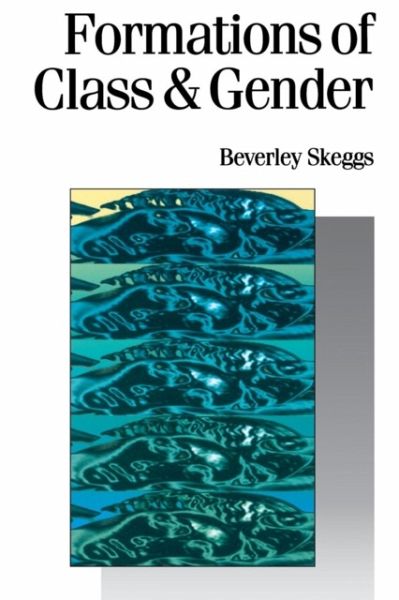
Formations of Class & Gender
Becoming Respectable
Versandkostenfrei!
Versandfertig in 6-10 Tagen
45,99 €
inkl. MwSt.
Weitere Ausgaben:

PAYBACK Punkte
23 °P sammeln!
Explanations of how identities are constructed are fundamental to contemporary debates in feminism and in cultural and social theory. Formations of Class & Gender demonstrates why class should be featured more prominently in theoretical accounts of gender, identity and power.Beverley Skeggs identifies the neglect of class, and shows how class and gender must be fused together to produce an accurate representation of power relations in modern society. The book questions how theoretical frameworks are generated for understanding how women live and produce themselves through social and cultural r...
Explanations of how identities are constructed are fundamental to contemporary debates in feminism and in cultural and social theory. Formations of Class & Gender demonstrates why class should be featured more prominently in theoretical accounts of gender, identity and power.
Beverley Skeggs identifies the neglect of class, and shows how class and gender must be fused together to produce an accurate representation of power relations in modern society. The book questions how theoretical frameworks are generated for understanding how women live and produce themselves through social and cultural relations. It uses detailed ethnographic research to explain how 'real' women inhabit and occupy the social and cultural positions of class, femininity and sexuality.
As a critical examination of cultural representation - informed by recent feminist theory and the work of Pierre Bourdieu - the book is an articulate demonstration of how to translate theory into practice.
Beverley Skeggs identifies the neglect of class, and shows how class and gender must be fused together to produce an accurate representation of power relations in modern society. The book questions how theoretical frameworks are generated for understanding how women live and produce themselves through social and cultural relations. It uses detailed ethnographic research to explain how 'real' women inhabit and occupy the social and cultural positions of class, femininity and sexuality.
As a critical examination of cultural representation - informed by recent feminist theory and the work of Pierre Bourdieu - the book is an articulate demonstration of how to translate theory into practice.




